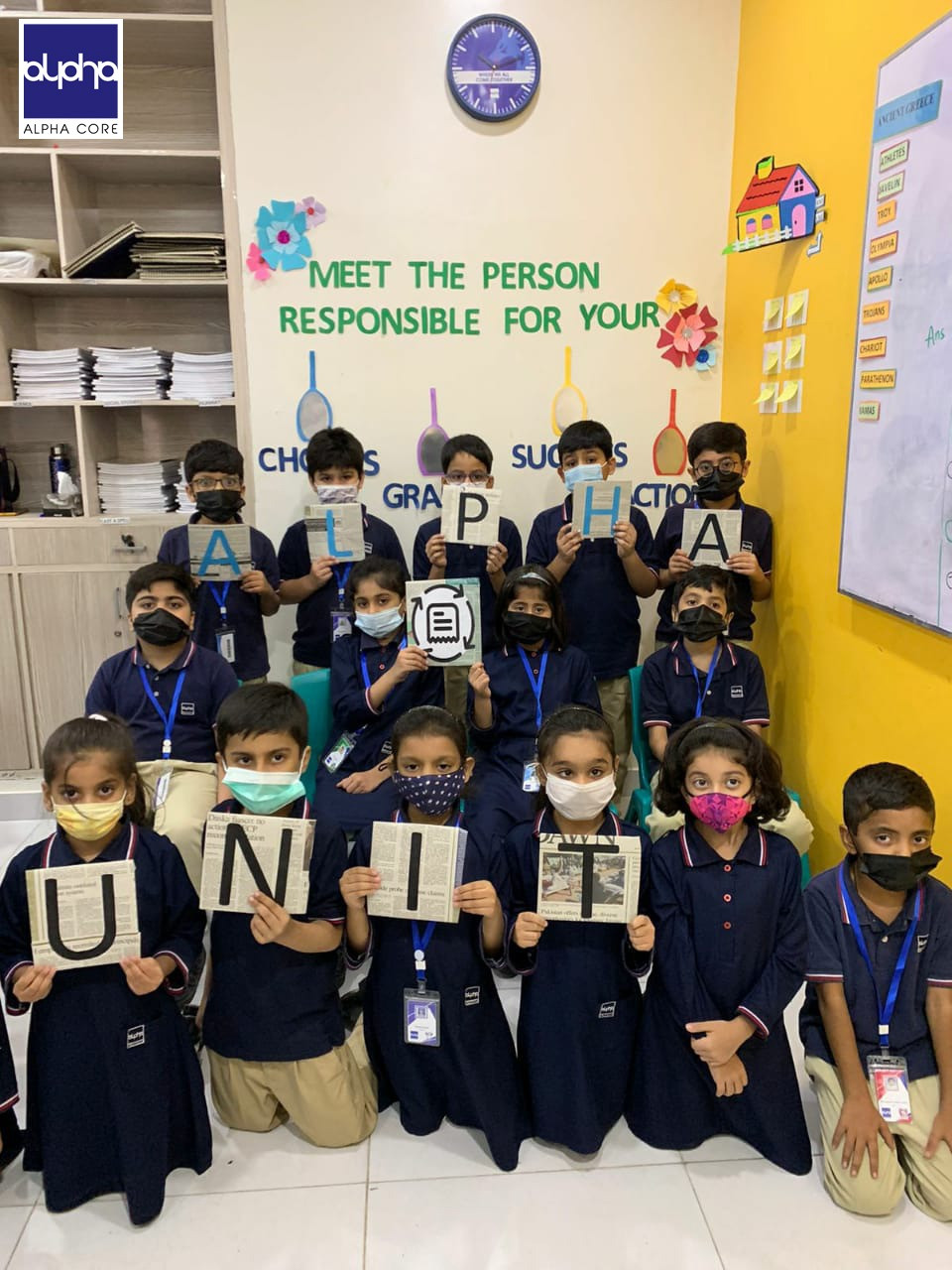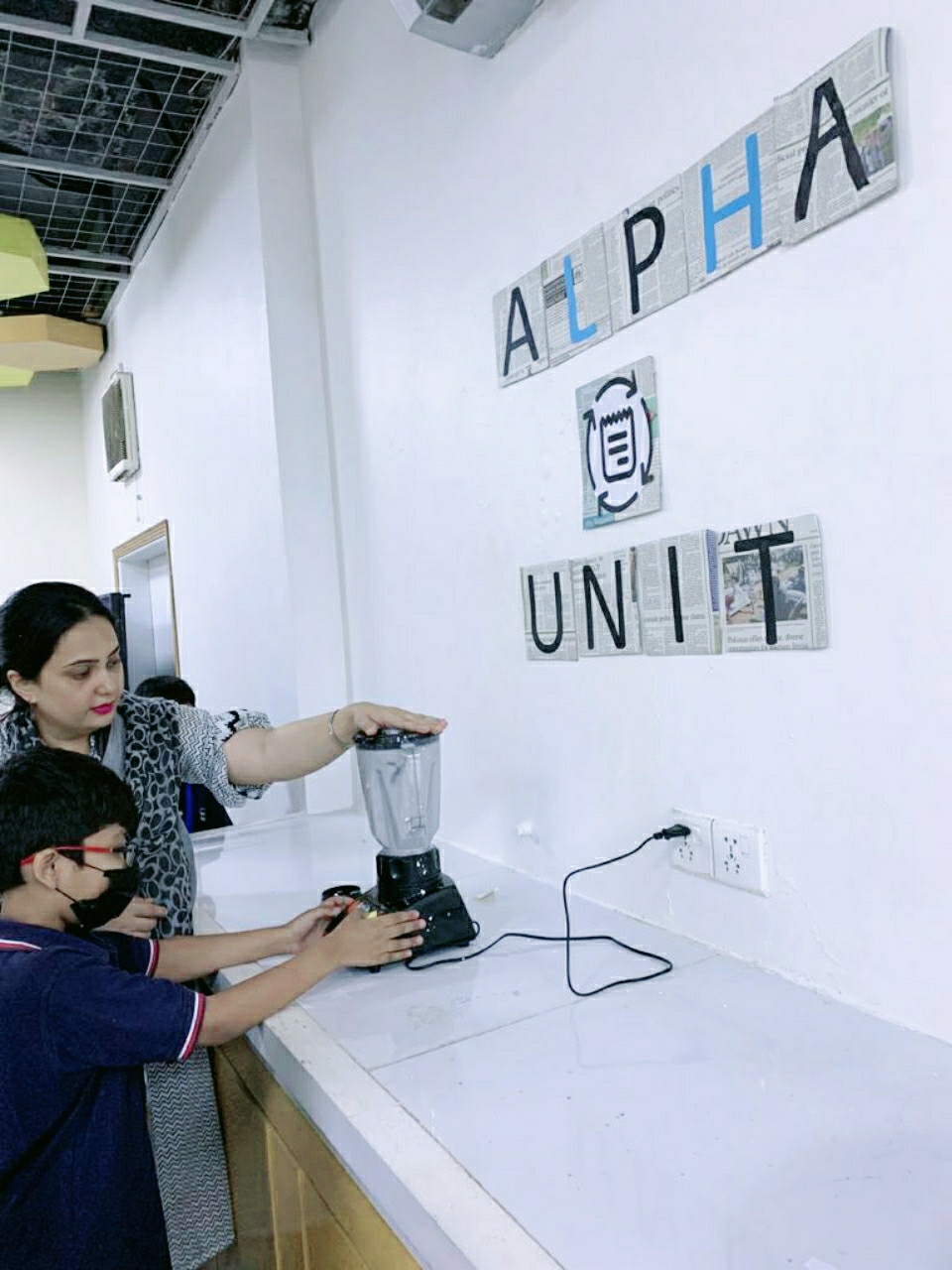According to Simon Sinek, a famous author on entrepreneurship, ‘Think big, start small but most of all, START’ - This famous quote was the pathway for 35-year-old, Aisha Nadeem Sagar who is a teacher by profession.
Sagar who never wanted to be a teacher has ended up winning accolades for Pakistan in international competitions because she believed in doing something good for education and helping children by educating them rather than encouraging rote learning.
She and her students at the Alpha Core School won the 2021 Best Global Annual Report in Pakistan. The Alpha Core School is a paper recycling business that produces decorative paper, signs and posters in their school science lab by recycling the paper they are throwing in the trash.
All students are from Grade 3 and the idea was to highlight the need for environmentally conscious businesses. As they explain in their Annual Report, “our production unit is environmentally friendly and emphasises on the 3R principles that are reduce, reuse and recycle. We are recycling used papers, reducing the threat of deforestation and reusing the used paper."
Sagar who has been a teacher with the school for the last four years works on project-based learning and helps children understand the concept by practical methods. When she heard of the global programme she thought to participate with her students and help them learn a new experience.
“After a few permissions and formalities from the school administration, I started teaching the students and informing them about the project,” she said.
To set up a small unit they needed some money, around Rs10,000 rupees, which could have easily been collected but in an effort to inculcate the value of money in her students, she made them take a loan from the school administration which will be returned from the products they make from the recycled papers.

Among the ten winners, Sagar and her students are the only Pakistani to win the award of $5000. “The competition registration started last year in April and soon afterwards, we started building our project,” she said, adding that the exposure to participate in an international project has helped build confidence within each of the students. Following Sagar, two other teachers and class students also sent in their entries from the same school. Their projects were about hand casting and digital library but they didn’t win.
Many other countries also participated in the school-enterprise challenge competition, which included Nigeria, Moldova, India, UAE, Romania, Paraguay, Malawi, Guatemala, Honduras, Mexico, Tanzania, Benin, Uganda, South Africa and Nicaragua.
How to recycle in school
The idea was to keep in view the environmental crisis the world is getting into and help lessen deforestation by re-using the paper for other uses. From the loan money, Sagar and her students bought a blender and paper casting frames. After that, they put up small boxes all around the school with banners instructing students to discard their used paper in the boxes rather than throwing it away. “Through the project, these grade 3 students developed theircommunication skills and confidence to go to even matric class students and explain their project to them and asked them to collect the used papers,” Sagar added.
After the collection of used papers, all papers are sorted by colors and then they were soaked in tap water. After the soaking process, the mashed paper substance is ground in a blender to make a thick paste out of it. The paste is then set into wooden frames according to the sizes desired and kept in sunlight to dry out completely. After the drying process, the paper, while still unrefined, is ready for use.
To refine the paper, a pressing machine is needed but because the project had limited resources they had to forego the machine and use unrefined paper. The recycled paper was then used to make decorative cards, bookmarks, greeting cards, envelopes, canvas and many other such items.

The students then set up a counter on the annual day of the school where they sold those for small sums. For instance, they sold bookmarks for Rs10 to 20 and envelopes for Rs 30 rupees. Through these sales, they were able to collect Rs 30,000 from an initial investment of of about Rs 8,000 rupees.
The money which was collected was then used to pay back the loan they took from the school, some money was used by students themselves as they held a party in the school t celebrate the success of their project and the rest of the money was used in the up-gradation of the project itself.
Students are also now experimenting with the paper as they keep adding seeds to them and making bio-degradable papers that can help plants to grow even if the paper is wasted and thrown away.
Future of the project
The winnings of the project, which they are still in the process of receiving, will be going to the school itself since the team had registered as the school. “I have proposed several ideas to the school on how to use the money, how to equip our students with better ideas and what teaching methods we can adopt to help children build themselves up more rather remaining puppets of a rote learning system,” she said, adding that a project of adopting a child is in a discussion where people who are adopting children’s education will be paying 50 per cent of the fee and the organisation will pay other 50 per cent, which can help lessen the numbers of out of school children which is currently somewhere near 22.5 million in Pakistan. “Such a project will not only help out of school children but also help children to get into better education systems and learn something,” Sagar shared.
Who is Aisha Sagar?
Mother of two, Aisha Sagar, stepped into the profession of teaching when she started finding good schools for her elder son Hayesum who is nine years old. Sagar is an MBA by qualification and a teacher by chance for the last nine years. Sagar has previously worked for The City School PAF chapter and Roots Millennium, and is currently working at Alpha Core School. “For me, teaching was never my choice as a profession but I got into it to better learn the dynamics of teaching methodology for my children,” she said.
To know their theoretical background and global experiences and to understand what she has been doing and get a tighter grip on her subject, she has recently enrolled herself in an M.Ed course at the University of Karachi as she believes it’s imperative to have an education degree to educate the leaders of tomorrow. “Internationally teachers are highly qualified with degrees of B.Ed and M.Ed but in Pakistan, mostly private school teachers are under-qualified while only government teachers hold a B.Ed or M.Ed but then the system there well is also weak, which is essentially the reason why we are collapsing as a nation due to low-quality education,” she lamented.
Sagar belongs to a conservative Memon family, but she was passionate enough to pursue her education, career and dreams. Her grandfather, Abdul Aziz Sagar was the first one to go to a college in his entire city of Jeitpur, India, where the family is originally from. “Despite being from a Memon family, where usually education is not as such a priority and boys usually start their own business or join the family business after completing class secondary education and the girls get married as soon as they complete matric or intermediate, my father was adamant that I complete my education,” she said.
Despite the encouragement of her family, when she was applying for universities, she faced many disapproving attitudes from relatives who questioned her father for sending her to a co-education education system and commented why he wasn’t just getting her married instead. ‘What will she do after getting a Bachelor’s degree,’ they’d say.
But her father remained undeterred in his decision and encouraged her to complete her MBA in marketing. Sagar performed extremely well in the course and after its completion, she got married and rather than working as a professional.
After having two children, her struggle began when she started looking up a school for her firstborn. “I realised it’s a rat race and everyone is fighting even for school forms. I remember that I spent a whole night sitting on a footpath in front of Mama Parsi school as I wanted the test form for my three-year-old son,” she said, adding that even then after appearing among thousands her son gained admission. However, she still recalls how she had to make him learn essays and other things, which were to appear in the test.
“Even after the admission, I wasn’t satisfied as he used to come home tired, with loads of homework and most of the work revolved around rote learning where instead, I’d hoped he’d be taught to learn through understanding,” she said. “That is when I decided to step into teaching and try unconventional methods to teach.”
Her idea of teaching revolved around, project-based learning, learning beyond classrooms, 360-degree analysis of students by a teacher to transform them, and learning by doing. After facing continuous issues from mainstream schools due to her unconventional teaching methods where teachers were asked to complete the syllabus within a certain period and if they are unable to do so, the course is taken away from them. “I am just trying to do my bit to transform the education at least for my students. For example, condensation and precipitation are hard to understand for grade 3 students. A child that young will only learn it word by word and will not understand how it happens, until you help the child learn it experimentally,” she said, adding that she used different Youtube videos and experiments to explain such topics in order to make science fun as well educational.
